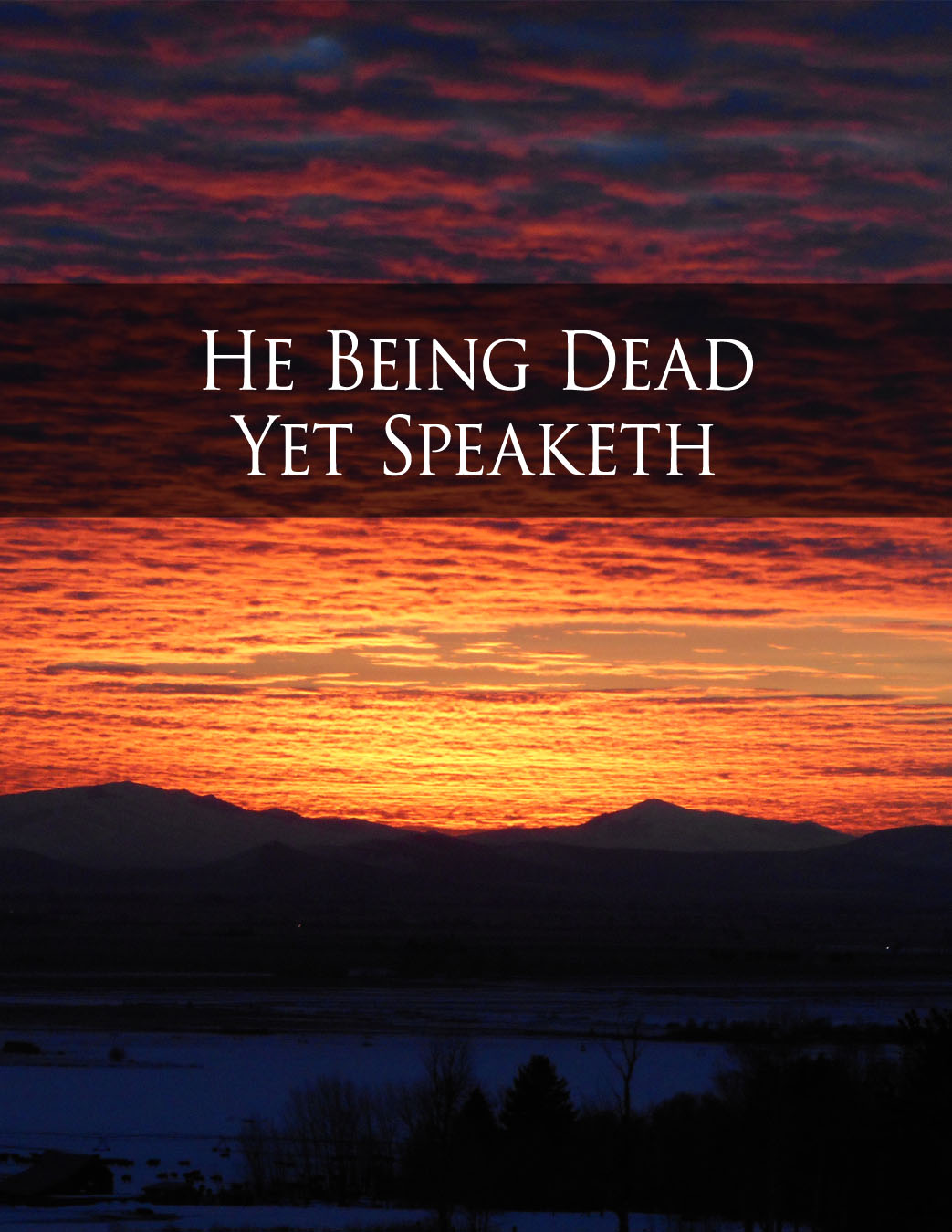Categories: All Articles, He Being Dead Yet Speaketh, Journals
Vance Tucker
I got to worrying about Vance Tucker. His wife, Alice, had passed away two years ago. He was elderly, childless, alone, and I hadn't seen him out jogging for quite some time; so I dropped in for a visit.
I found him hale, hearty, cheerful, and being more careful about his activities as he neared his 88th birthday. I found him to be a kindred spirit. We had a delightful 3-hour conversation. He remarked, "I haven't talked this much total in the last two years."
I was glad I'd come. Being lonely is one of the most difficult of life's challenges, yet Vance wasn't like other lonely people that I've known. The others are so hungry to talk that they dominate the conversation, leaving you with nothing to do but listen. I haven't had such an enjoyable give-and-take conversation in decades.
Vance doesn't act lonely. He can't be having much human interaction, but he seems perfectly content with life. He genuinely appreciated my visit, though, and I enjoyed it so much that I determined to see him on a regular basis.
For my second visit I took my book, In A Grove of Aspens, and read the two articles therein that I'd written about his wife. (See pages 279 and 285). On a whim I left the book with him in case he'd want to read more. I was sticking my neck out. I think my writings are good, but I've never shared them with anyone but my family. I suppose I was testing the waters to see if my writings could possibly interest anyone other than my kids and grandkids.
My third visit involved taking my grandsons, David and Gideon, to help Vance clear away the rocks that Rock Creek had rolled in front of the head gate of his irrigation ditch. I didn't think that an 88-year-old man ought to be wading around on slick rocks in a cold creek by himself. He had a half-day's labor ahead of him. David and Gideon, with minimal help from Vance and I, had the job completed in 15 minutes.
My fourth visit was yesterday (1 April 2024). My purpose was two-fold. I wanted to retrieve my book, and I wanted to invite Vance to dinner to celebrate his 88th birthday on the 4th.
Vance immediately went for my book. (I thought to myself, "He's anxious to be rid of it. I'll bet he hasn't read much.")
As he held the book I tentatively asked, "So what did you think?"
"Well," he said slowly ... "frankly ..." --("Oh, oh," I thought, "brace yourself for some criticism.")--"frankly ... I can't put it down! I'm not quite done with it, so I'd like to keep it just a little longer."
My spirits soared. This intelligent man, this former college professor, found my writing interesting!
"Where did you learn to write like that? There's not a mistake or typo anywhere. You know how to paragraph and use grammar. You're a writer, and this is publishable.
"I read the article about Alice. It was just like hearing her talk, which I guess she was. You entitled the article, 'Alice Tucker.' That's a good literary devise. It catches your interest.
"She should have told you about the raccoon dance. She called my attention to a raccoon acting strangely out in the yard. It would advance six feet, do something, back up, sit up, put its paws over its ears, and then repeat the process over and over. We watched it for perhaps 15 minutes.
"We decided that there must be a yellow jacket nest in a hole in the ground. The coon was probably eating the bee brood, and kept backing up to periodically cover and protect its ears from the bees. After the coon left we went out to check, and found a hole in the ground where the yellow jackets had their nest.
"I got to watch that dance again, but this time Alice did it. She was mowing the lawn. All of a sudden she let loose of the mower and started dancing all over the lawn and swatting bees. The lawn mower had gone over a yellow jacket nest, and she was getting stung."
"Be careful, Vance, I may have to go write this down."
"I was wondering if you would ...
"There had been a tree there in the yard, and it left a hole in the ground. The bees had their nest there. We opened a can of tuna fish. After the bees had gone to bed for the night we poured that tuna fish oil down the hole. The next morning the bees were gone. The smell of the tuna fish got the raccoon's attention, and it took care of the problem.
"We lived in a 1,200-square-foot brick house in North Carolina surrounded by six oak trees that were three feet in diameter breast high. The previous house that sat there had burned. The fire damaged the sides of the trees that faced the house. Branches grew around the damage, and the scars left holes that made wonderful raccoon nests.
"A mama raccoon had her babies there. When she was away from the nest Alice would go out to hold and cuddle the little coons. They were really cute. But we finally decided that wasn't a good idea. Coons can be a reservoir for rabies.
"I once shot a rabid coon."
